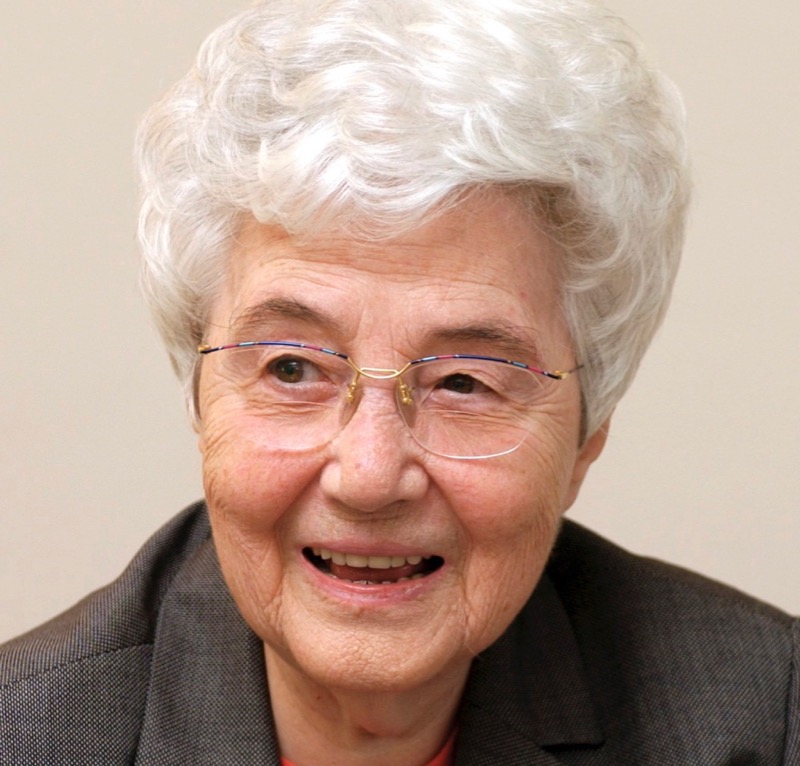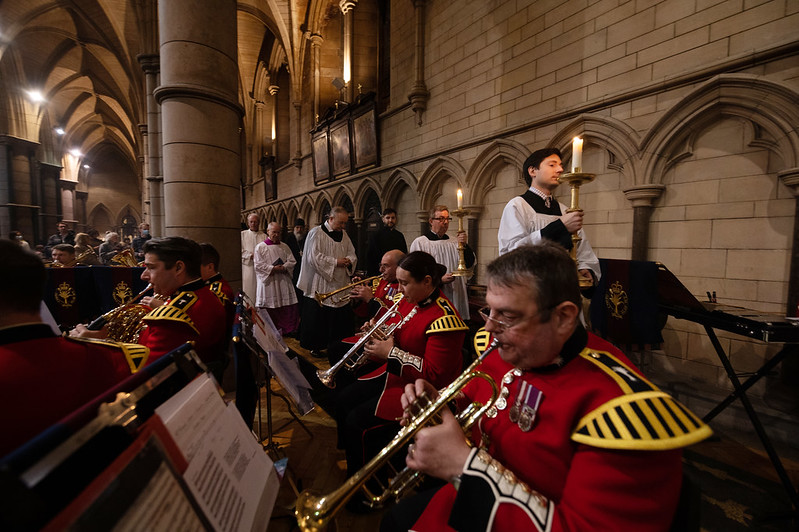The lead bishop for Life Issues, Bishop John Sherrington, has criticised the decision to allow women in England to continue to access “DIY” abortion medication at home for early pregnancies. “Such a move diminishes the seriousness with which these decisions should be taken and not only will this endanger the lives of the unborn, but also the lives of women,” he said. He added: “It is clear from the evidence over the last two years on the self-administration of these drugs at home that they pose grave physical and psychological dangers to women.” The temporary measure was brought in at the beginning of the Covid-19 pandemic lockdown in March 2020 but was rescinded by the government earlier this year, and was due to cease on 30 August 2022. However, MPs voted by 215 votes to 188 to support an amendment to the Health and Care Bill allowing women to use the pills at home. Bishop Sherrington said that the amendment “overturned the Government’s decision to end ‘DIY’ abortion and fundamentally changes access to abortion in England and Wales”. He thanked those who wrote to their MP asking them to oppose this amendment. His statement concluded that “in the face of this disappointing outcome, we must now strengthen our resolve to foster a culture of welcome and acceptance of new life, and to continue to pray and work for better legal protections for pregnant women and the child in the womb”. At-home abortions for women in early pregnancy have already been made permanent in Wales. Measures allowed women and girls to take pills for early medical abortion in their own homes, up to nine weeks and six days gestation. This would follow a telephone or e-consultation with a clinician without needing to visit a hospital or clinic beforehand.
Two trucks loaded with aid supplies collected by the Archdiocese of Liverpool left for Ukraine on 2 April. Camp beds, sleeping bags, and medical supplies were included in the consignment described by Bishop Thomas Neylon as “a physical expression of prayer”. The trucks will be met in the Ukrainian diocese of Sambir-Drohobych by Bishop Gregory Komar, who was taught by Liverpool priest Fr Francis Marsden when he was studying for the priesthood. The supplies include items specifically requested by Bishop Komar, and were collected through the archdiocesan Help Ukraine appeal. They will be distributed amongst refugees in western Ukraine.
The ecumenical organisation Churches Together in England marked Sunday 3 April with a joint act of witness to pray for peace in Ukraine. Christians of all denominations lit candles and joined in prayer at 2pm. The organisation’s president, the Archbishop of Canterbury Justin Welby, said that in praying together “we witness to the possibility of unity and the promise of reconciliation”. Church leaders including Bishop Kenneth Nowakowski, the Ukrainian Catholic eparch, and John Semtamu, the former Archbishop of York, offered prayers outside the Ukrainian embassy. The Ukrainian colours were broadcast onto Westminster Abbey and Methodist Central Hall in London.
A relic of the true cross is to go on display in a York convent later this year, along with recently uncovered certificates of authentication dating back to the 19th century. The Bar Convent in York, home to a community of sisters from the Congregation of Jesus, describes itself as Britain’s “oldest living convent”, with religious sisters resident there from 1686 onwards. Thanks to the work of lay researchers, archival documents outlining the history of the relic back to 1792, when it arrived in the UK for the first time. The relic is encased in an ornate reliquary case of silver gilt and precious stones, designed by the architect George Goldie between 1867 and 1870.
The Northern Irish assembly has passed a bill disallowing schools from discriminating on the grounds of religion in hiring decisions. The chairman of Stormont’s education committee, Chris Lyttle’s Fair Employment (School Teachers) Bill was welcomed by teacher’s trade unions and integrated education campaigners, who hailed the move as a step forwards for community relations and worker’s rights. It follows the passing of the Integrated Education Bill, which pledged enhanced support by Stormont for integrated education. Over 90 per cent of schools in Northern Ireland are affiliated with Catholic or Protestant religious communities: just 7 per cent of schools are currently integrated.
Christian Climate Action has joined a month of nonviolent action by Extinction Rebellion and Just Stop Oil to lobby the government to stop all new fossil fuel investments immediately. Anglican clergy blocking fossil fuel infrastructure this week included Rev Mark Coleman, retired vicar of Rochdale, Rev Helen Burnett and Canon Jonathan Herbert of Hilfield Priory. Protestors outside Chichester cathedral urged Chichester diocese to divest from fossil fuels. Churches, bridges and motorways are displaying banners such as “No Faith in Fossil Fuels” in the lead up to a rally in Hyde Park on 9 April. From that day a week-long online interfaith vigil has been organised online. Campaigner Angus Rose, who was raised a Catholic, is in the third week of a hunger strike at Westminster to urge Greg Hands, the Minister with responsibility for climate change, to arrange a televised briefing on climate change for all MPs by the chief scientific advisor Sir Patrick Vallance.
The Catholic youth charity Million Minutes launched its 2022 Celebrating Young People Awards on 1 April. It offers six awards for children and young people working in the cause of Catholic Social Teaching, an award recognising youth workers, and a new award for clergy and religious engaged in social work, introduced in collaboration with the Jesuits in Britain. Nominations are open until mid-May, and the winners will be announced at an event in July 2022, hosted at the Palace of Westminster by the Labour MP Siobhain McDonagh.
A number of priests in the Archdiocese of Armagh have responded to Archbishop Eamon Martin’s appeal to parishes to offer accommodation to Ukrainian refugees. One of 120 priests across Armagh’s 61 parishes who has responded to Archbishop Martin’s call to consider offering spare rooms or accommodation for use by refugees is Fr Paul Byrne of Armagh’s Diocesan Priests Council. He has registered the parochial house in Termonfeckin, Co Louth with the Irish Red Cross. Speaking to the Irish Times, Fr Byrne said, “Some parishes may have no available parochial properties and some may have unused homes which have become vacant due to the death of a priest or a reduced number of clergy in the parish.” He said the Church is working with the Government and all relevant stakeholders on protocols in placing people in appropriate accommodation. “We can’t ask people in the parish to welcome refugees into their own homes if we are not prepared to do the same,” he said.
The Catholic Social Action Network (CSAN), the official Catholic agency tackling poverty and injustice in England and Wales, has published a formation resource to encourage parish communities to address poverty in their localities. CSAN’s chair, Bishop Patrick Drainey of Middlesbrough, says in the forward that destitution and violence feature in the storm “breaking in front of us.” The resource is available on CSAN’s website. This week the Joseph Rowntree Foundation warned that 600,000 people will be pulled into poverty due to inaction in the Chancellor’s Spring Statement. On 30 March, Caritas Salford was among supporters of the Living Wage 4 Social Care lobby, organised by Citizens UK at Westminster. They met several Greater Manchester MPs, telling them that 71 per cent of care workers earn below a Living Wage and struggle to afford their everyday needs.
The Bishop of Arundel and Brighton, Richard Moth, made the Stations of the Cross with prisoners at HMP Send on 31 March. Bishop Moth, who is the bishops’ conference’s liaison for prisons, visited the women’s prison with the Catholic prison charity Pact, and used a text for the liturgy produced by the charity. This includes the words of former prisoners and their families, reflecting on their experience of the criminal justice system. Bishop Moth made the visit with Canon Paul Douthwaite, the National Catholic Chaplain for Prisons.
A special sung votive Mass at St James’s, Spanish Place celebrated Welsh language and culture on 30 March, under the title Offeren Gymraeg, Offeren Mewn Diolchgarwch. The principal celebrant, Fr Gildas Parry O’Praem., offered the Mass in thanksgiving for the Welsh contribution to the universal Church, with music provided by four choirs and the band of the Welsh Guards.
The Southwark archdiocese has clarified its position further over the John Fisher school, where staff are being balloted for strike action after a proposed visit and book signing by gay author Simon James Green was cancelled and governors removed. In a “response” document, the diocese explains that it was concerned in particular about a passage in the book Noah Can’t Even where “sexualised content and language” was intertwined with the Lord’s Prayer.
Archbishop Leo Cushley of St Andrews and Edinburgh marked the quarter centenary of the Cardinal Winning Pro-Life Initiative in a special Mass last week. The initiative was begun twenty five years ago after Cardinal Thomas Winning, the Archbishop of Glasgow, announced that the Catholic Church would seek to help any woman who was considering termination of a pregnancy. It was founded by Sr Roseann Reddy, who last week described the work of the Pro-Life Initiative, responsive for saving some 2000 babies from abortion, as “the Church at its best”. In his address Archbishop Cushley thanked the Sisters of the Gospel of Life for their work and said that the protection of life remained “the greatest task” facing the Church today.
The Scottish Government has lifted the requirement to wear masks in church. Mandatory face covering ceased on April 4, though it remains in force in retail premises and on public transport for a further two weeks. Scotland’s antic-covid measures have in general been more stringent than in the rest of the United Kingdom and the Holyrood government’s decision to close places of worship early in the pandemic despite evidence suggesting infection risk was low was protested by senior clergy and laity. First Minister Nicola Sturgeon said that her priority had been to strike a balance between a general desire for no restrictions and a common-sense need to protect the public. Infection rates in Scotland remain very high, affecting schools in particular.
The Vatican’s Secretary of State was chief celebrant at a Mass in Rome today to mark forty years of full diplomatic relations between the United Kingdom and the Holy See. Cardinal Pietro Parolin was joined by the Archbishop of Westminster, Cardinal Vincent Nichols, and the former Archbishop Armagh, Cardinal Seán Brady, for the Mass at the Papal Basilica of St Paul’s Without the Walls. The celebration was organised by the UK’s Ambassador to the Holy See, Christopher Trott.



 Loading ...
Loading ...